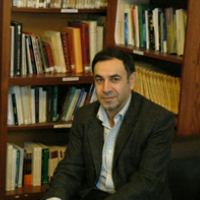Analysis of Imam Khomeini's Views on Military Intervention in Political Competitions
Among the topics studied in political sociology, is military intervention, as one of the organized social groups, in politics. Military intervention in politics is a global phenomenon that occurs in many countries of the world in varying degrees and forms. In all the states, the army and military organization form and act in order to carry out certain tasks that the protection of territorial integrity of the country and the safekeeping of the state structure and the existence of governors are among the most important of them. But it often happens that these forces clearly go beyond their defined tasks and tend to interfere in politics and government and gain political power or influence politics and politicians. Imam Khomeini, the late leader of the Islamic Revolution emphasized repeatedly the need for non-military intervention in politics from the very beginning of the revolution. The question posed in this study is why, while Imam Khomeini emphasized the need for all citizens to be involved in politics, he opposed military intervention in politics? In other words, what was the main reason for the imam's opposition to military intervention in politics? The present paper, using the Huntington Army's professionalism theoretical framework, tests this hypothesis that Imam Khomeini considered military intervention in politics a reason to reduce military professionalism and the withdrawal of the military organization from its professional tasks, and thus strongly opposed it.
-
Political Sociology of Population Aging
Samira Moradi *, Masoud Akhwan Kazemi, Mohammad Abolfathi
Journal of Contemporary Sociological Research, -
state of sensitive: suspension and elimination of the law in light of the negation of the exceptional status
Seyed Abbas Hoseini Davarani *, , Ghodrat Ahmadian
Journal of Political science Association, -
Conflict between Iran and Saudi Arabia in the Light of Developments in the Region in 2011; the Transition from Identity-based Security Approaches to Classical Realism
Farzad Rostami *, , Samira Akbari
Journal of Political and International Approaches, -
A Strategic Analysis of Iran and Saudi Arabia in 2011 Developments and its Impact on Iran and the Persian Gulf Cooperation Council Relations
Farzad Rostami *, Samira Akbari,
Journal of Crisis Studies of the Islamic World,




